Premium Only Content
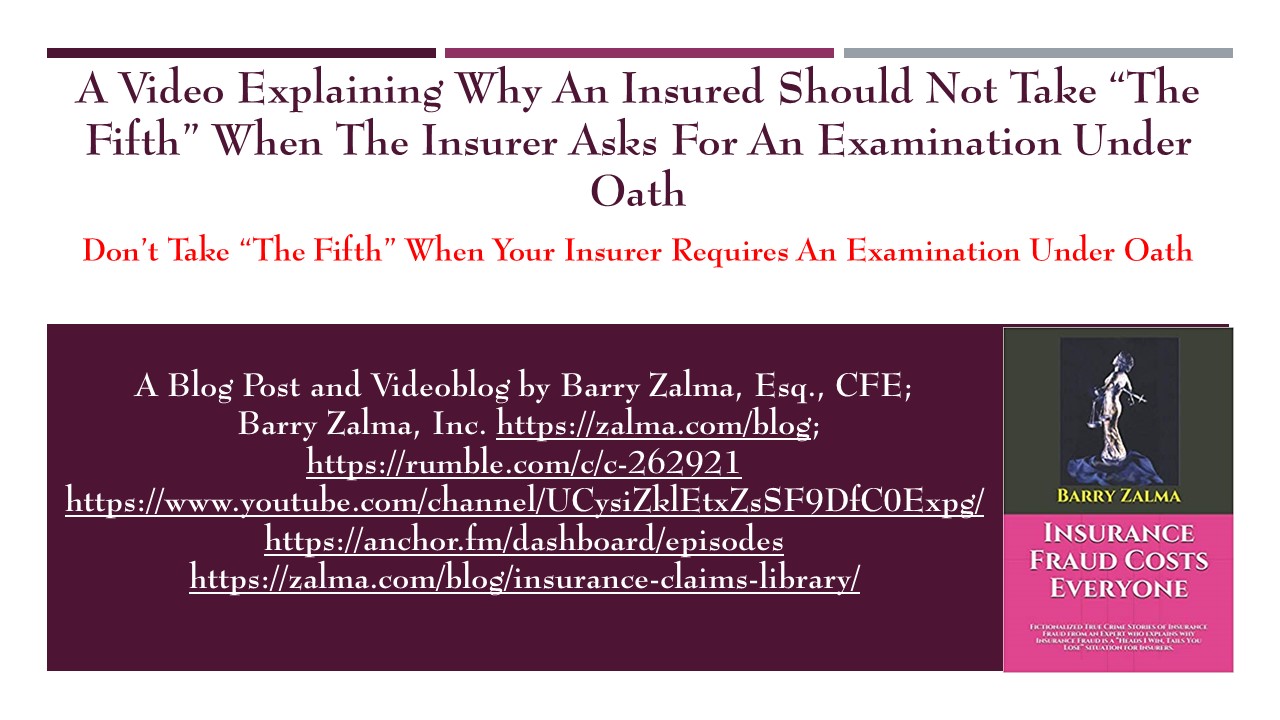
A Video Explaining Insured Should Not Take “The Fifth”
Don’t Take “The Fifth” When Your Insurer Requires An Examination Under Oath
The most effective tool an insurer has against fraud is the examination under oath. The right to compel an insured to appear for examination under oath has been part of the standard fire policy in every state of the United States that adopted the N.Y. Standard Fire Insurance policy. The right was recognized by the United States Supreme Court in Claflin.v Commonwealth Insurance Company, 110 U.S. 81, 3 S.C. 507, 28 L.Ed. 76 a decision unchanged since it was decided in 1888.
When an Insured is suspected of arson, or some other variation of insurance fraud, the insurer will almost always require testimony at examination under oath. The Insured often refuses to appear for examination under oath — a material condition of the policy — claiming the insurer’s demand was a bad faith attempt to deprive him of his right against self-incrimination stated in the Fifth Amendment to the US Constitution.
In Gruenberg v. Aetna Insurance Co. 9 Cal.3d 566, 108 Cal.Rptr. 480 (1973) the California Supreme Court ruled that an Insured had stated a cause of action for breach of the covenant of good faith and fair dealing when the insurer denied the claim for refusal to testify at examination under oath. In fact, the Insured agreed to testify as soon as the criminal proceeding was completed.
It seems the pendulum is swinging. It is time that Insured’s recognized — and insurers enforce — the rule of law that requires an Insured to appear for examination under oath promptly when required to do so by his insurer, as mandated by the standard California Fire Insurance policy, California Insurance Code §§ 2070 and 2071.
If Gruenberg stands for the proposition that insurers must wait until the Insured is exonerated in his criminal proceeding the California Supreme Court should revisit Gruenberg and adopt the reasoning of the Massachusetts Supreme Judicial Court in Mello and the California Court of Appeals in Fremont and Altfillisch to eliminate a long delay that would make defense of the insured’s suit beyond the ability to prove the defense of fraud. Insurers, to avoid the problem raised by the California Supreme Court should never file, in California, a complaint for declaratory relief against an insured and compel the insured to file since, as a plaintiff, he would be unable to assert the Fifth Amendment to prevent a deposition or trial where he may incriminate himself.
-
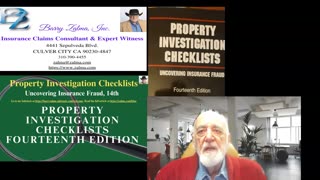 4:56
4:56
Barry Zalma, Inc. on Insurance Law
1 year agoProperty Investigation Checklists - 14th Edition
2822 -
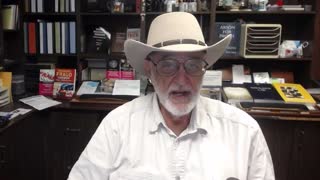 16:33
16:33
Barry Zalma, Inc. on Insurance Law
5 years agoA Video Explaining the Unethical Insured
17 -
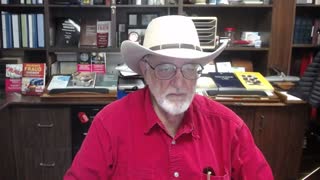 13:28
13:28
Barry Zalma, Inc. on Insurance Law
5 years agoA Video Explaining How a Claims Person Should Select Counsel
18 -
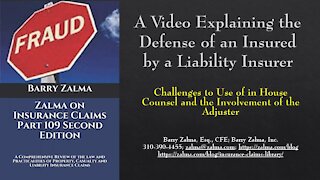 16:05
16:05
Barry Zalma, Inc. on Insurance Law
5 years agoA Video Explaining the Defense of an Insured by a Liability Insurer
43 -
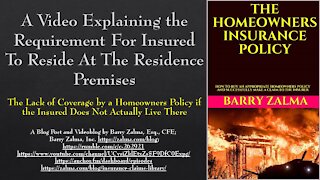 16:46
16:46
Barry Zalma, Inc. on Insurance Law
4 years agoA Video Explaining the Requirement For Insured To Reside At The Residence Premises
107 -
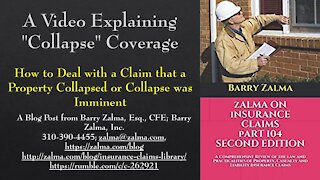 17:01
17:01
Barry Zalma, Inc. on Insurance Law
4 years agoA Video Explaining "Collapse" Coverage
170 -
 16:55
16:55
Barry Zalma, Inc. on Insurance Law
4 years agoA Video Explaining Intentional Acts Exclusions
82 -
 7:58
7:58
Barry Zalma, Inc. on Insurance Law
4 years agoA Video Explaining Some Advertising Injury Coverage
102 -
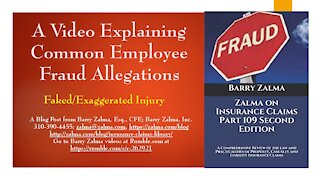 13:42
13:42
Barry Zalma, Inc. on Insurance Law
4 years agoA Video Explaining Common Employee Fraud Allegations
131 -
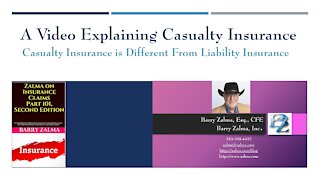 16:42
16:42
Barry Zalma, Inc. on Insurance Law
5 years agoA Video Explaining Casualty Insurance
79